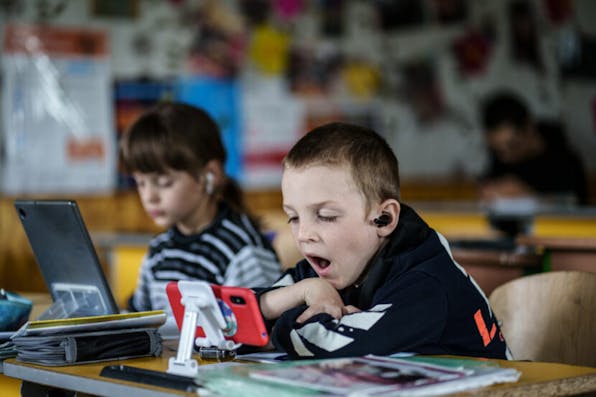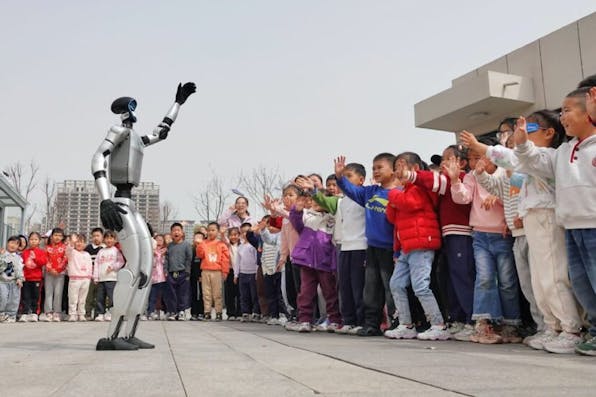
April 4, 2025
Rescuing the Classroom from the High-Tech Takeover
Digital technology promised to free students. Instead, it threatens the extinction of education.
We are deeply grateful to Miriam Krupka and Christine Rosen for their thoughtful responses. One a teacher on the frontlines of the ed-tech debate, the other a philosopher of technology, both Krupka and Rosen offer crucial perspectives that complement our own.
Rosen rightly observes that the pathologies of ed tech represent broader trends in society, particularly the loss of self-evidently healthy norms: writing with a pen, preferably in cursive; approaching a woman in person instead of “swiping” on a dating app; chatting about politics with acquaintances at a café instead of berating strangers on social media; making eye contact; working in a physical office. Business meetings happen over Zoom and conversations via text messages. In short, technology has largely replaced older forms of socialization. Rosen’s recent book, The Extinction of Experience, chronicles the disappearance of these conventions—some trivial, others foundational to the human experience.
The youngest among us have the least familiarity with the pre-digital ways of doing things. (Think of how those under a certain age find it rude to call someone without texting first, whereas members of older generations will simply pick up a phone and dial.) Thus the battle to interrupt the slide into digital socialization must focus in particular on children. A world in which children’s attention span is decimated by the age of fifteen is a world in which we have no choice but to embrace more mediation through computers and phones, more “gamification” of learning, and more screens. Ed tech is the product of that world, a world in which virtually every encounter or activity is measured, recorded, shared, and optimized. Younger generations may grow up thinking these forms of study and interpersonal engagement are not aberrations but norms. Without a conscious, determined effort, the transformation could be irreversible. Ours is a pivotal moment because it might offer the last chance for us—as individuals and as communities—to chart another path.


